Chikako Hosokawa
Birth : 1905-12-31, Tokyo, Japan
Death : 1976-03-20

Mukita Michiyo
The love story between a traveling guest and a geisha who inadvertently becomes the leader of her father's yakuza clan, after his death.

Tokyo engineer Kariya arrives on a primitive tropical island, where he interacts with the Futori clan, to drill a well to power a sugar mill.
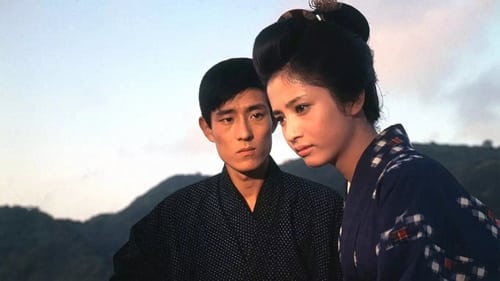
Fusae Takasuga
Shimamura is a young man whose family went broke and lost their house. One day, as he returns to his former house to get a camellia blooming from the garden, he sees a beautiful schoolgirl who lives there. After they coincidentally meet again they fall for each other, but she is already engaged.
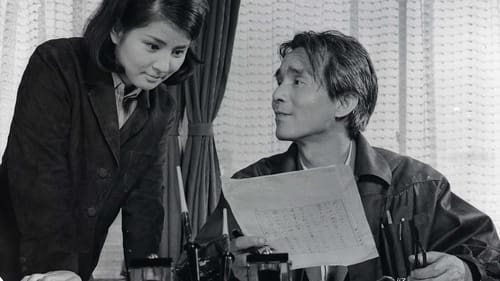
Kasai

Kamata
She'd watched them go one by one. Friend after friend. White dress after another. Yet again, Shimako was attending another wedding reception that wasn't hers. She knew the procedure: watch the bride and groom get congratulated, smile to cover up the loneliness. But she didn't want to feel like this forever. In that moment, Shimako decided that the next wedding she'd attend had to be her own.

Mixed-race children in Japan become involved in the petty theft of car parts.
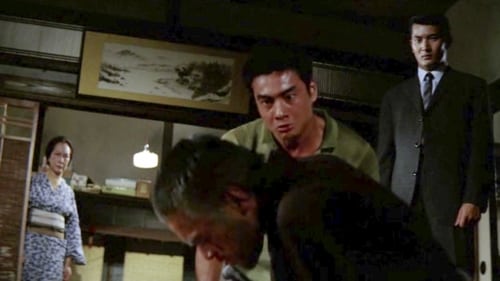
Hatsu Asari
Two brothers seek revenge on the yakuza responsible for the death of their father.

[Period covered: 1595-1600] Third film in the famous shinobi no mono series. We last saw ninja Ishikawa Goemon (Raizo Ichikawa), as he was about to be boiled alive. But a good ninja is both hard to find, and even harder to kill. With the help of the enigmatic Hattori Hanzo, Goemon lives to skulk another day, and sets his sights on bringing down the warlord who tried to turn him into soup – Toyotomi Hideyoshi. And as always, in the background, the suble hand of Tokugawa Ieyasu is pulling strings as he plots to rule all of Japan!

In 1963, Funaki Kazuo's debut song of the same name was released and then it was adapted to a movie based on Kenji Tomishima 's novel “Shake to Tomorrow” with the same title, produced by Daiei with this song as a motif. Singer and actor Funaki Kazuo also appears in the movie, which depicts the fun, love and heartbreak in a Japanese school.
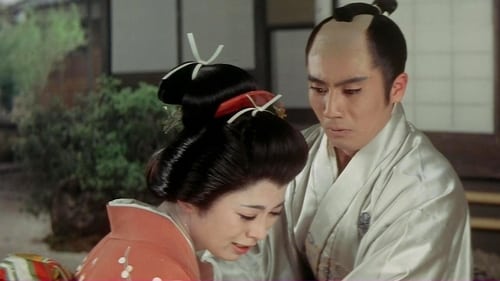
Mayumi
The shogun's vassal Harima Aoyama and a chamber maid are in love with each other, but they cannot be together due to a difference of their status. Soon, an offer of marriage is brought to Harima. Trying to test his love, Okiku breaks one of the plates of the family treasure of the Aoyama family, but Harima doesn't notice. However, someone surrounding her witnesses the moment Okiku breaks the plate on purpose.

Kinko, Mami's mother
Jiro, a young yakuza, and Mami, a diplomat’s daughter, are two young lovers from different worlds. Having met by accident, they soon discover a new life together. But their love is ill-fated. Mami's family will not accept her choice, while leading an honest life seems like an unattainable goal for Jiro. Can there be anything else but a tragic ending?

Not too long ago, Soichiro was considered one of the most powerful men in business. But his business had failed, his granddaughter had committed suicide. There was nothing in his life anymore that he could look forward to. Sochiro was ready to put an to it end to all. As he drives down the Usui Pass, headed toward his summer house in Karuizawa, a girl in red heels, wearing nothing else but a coat jumps in front of the car.


Maya
An Indian prince leaves his world of comfort and riches behind to wander and meditate for six years in search of spiritual enlightenment. Siddartha (Cojoin Hong) turns his back on the old religion when people are starving needlessly and holy rituals include human sacrifices. During his meditations, he is tempted by erotic dancing women, demons, and the evil machinations of his criminal cousin. Devastate to attain the spiritual perfection and become the Buddha. He travels to convert followers by his kindness and wisdom, gaining a multitude of believers when he stops an elephant from crushing a local priest. Buddha of course goes on to become one of the great religious leaders of the world.
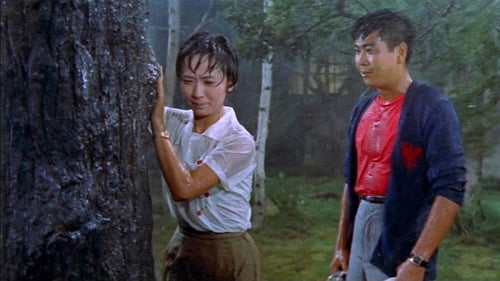
Grandmother
Asada Keiko and Kurokawa Saburo are two young college students. When Keiko visits Saburo's house, she meets his father Kokichi and his mother Motoko. Motoko is a famous hair dresser, who openly flaunts her lover. When Kokichi and Motoko fight, which they do a lot, he routinely threatens to leave but never quite does. A relationship develops between Saburo and Keiko, but Saburo is shaken when his mother tells Keiko the truth about Saburo's past and the secret of his birth.

Shikiko Oba is nimble with her fingers and teaches dressmaking and designing. Among her pupils are Rinko, Katsumi and Tomie. Ginshiro, who is as shrewd as the shrewdest of the older generation of dyed-in-the-wool Osaka businessmen, steps into picture and Shikiko soon feels that he is indispensable to her. But the advent of a man in their midst breaks up the harmony that has existed among the four women, as gradually he forces himself on them with promises of love.
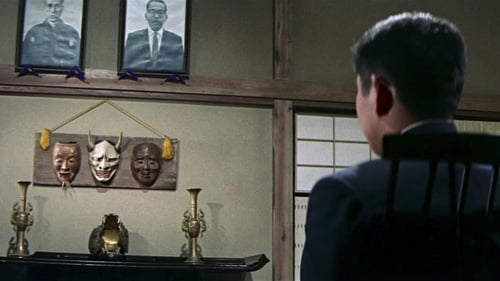
Mrs Elizabeth
A college student takes over the family business in the field of organised crime.

Ikuyo Matsudaira
This rarely seen gem from master Suzuki casts teenage heartthrob Koji Wada as a young misfit who suddenly finds himself the unwitting pawn in an escalating family feud that ultimately leads to tragedy. Lean, mean, and stylish as always, this tale of youth-gone-wild is both vibrant and touching. Suzuki contrasts tranquil glimpses of traditional regional life with the emergence of the new rock 'n' roll youth culture and the greed and seething cynicism of encroaching Westernism. Also released under the title "Go To Hell, Hoodlums!", this is a melodrama as colorful, shocking, and exhilarating as one would come to expect from Japan's master filmmaker.

It's a story of the life of a man who advocated the necessity of sex education to children, which was unusual at the time, solely opposed to the amendment of the Peace Preservation Law, and was assassinated by a rightist prior to his opposition speech.

Otsune Shirokoya
Set in the middle of the Edo period (1603-1867), this tragic love story takes its cue from a celebrated historical case tried by magistrate Tadasuke Ooka, whose shrewd legal decisions became the stuff of legend. Okuma Shirokoya, the daughter of a lumber merchant in Edo (today’s Tokyo), embarked on an affair and was executed after conspiring with her maid to murder her husband. (Source: https://festival.ilcinemaritrovato.it/en/proiezione/shirokoya-komako/)

Matsuko
Keiko, whom everyone calls Mama, narrates her story: she's a hostess on the Ginza, 30, a widow. She describes life's vicious cycle: acting cheerful around drunks, dressing and living well to convey confidence, needing money for these expenses and for her demanding mother and brother, and knowing she's growing older. She's of an age when she must choose: to seek marriage (difficult given her tarnished occupation), to be a kept woman, or to borrow money to buy a bar of her own. Each route has dangers, including investors demanding a return on their loans. Keiko has a quiet dignity that attracts men, but are they what they seem? Does she actually have choices?
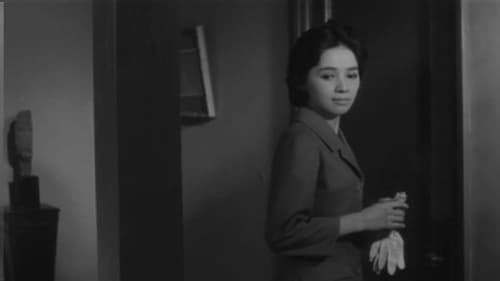
Noriko Fujiwara
After witnessing a murder, a married woman and a student agree not to meet and see each other out of fear of exposing their affair.

Mrs. Mayama

The story follows Oshino, a geisha who is trying to start a new life with a lover who is a painter. However, her past filled with debts and pimps catches up to her.

A family is slowly falling apart: the father is absent from the start, the mother a kept woman thanks to her children, the son is being cheated on by his wife, one daughter is forced to marry an older man against her will, while the other has retreated into smug moral superiority.

川口夫人
A sophisticated comedy about love games between men and women that arise from an intentionally dropped train ticket.

Tsukiko, Kakuko's mother
Based on Kakuko Mori's autobiography, about her life and retirement from acting due to her increasing blindness.

Madame
Based on the novel by Torahiko Tamiya.
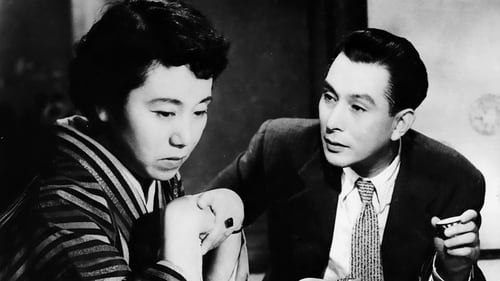
Tamae
What is the life of a Geisha like once her beauty has faded and she has retired? Kin has saved her money, and has become a wealthy money-lender, spending her days cold-heartedly collecting debts. Even her best friends, Tomi, Nobu, and Tamae, who were her fellow Geisha, are now indebted to her. For all of them, the glamor of their young lives has passed; Tomi and Tamae have children, but their children have disappointed them. Kin has two former lovers who still pursue her; one she wants to see, and the other she doesn't. But even the one she remembers fondly, when he shows up, proves to be a disappointment.

Shigisawa's wife
Tokyo, 1890. Through avarice, a series of misunderstandings, and failures of courage, the engagement of Kan-ichi (a student) and Miya (the daughter of Kan-ichi's debtor) is canceled to enable Miya to marry Tomiyama, a wealthy banker's son. In bitter despair, Kan-ichi breaks with his friends, drops his studies, and declares he has ceased to be human. He apprentices to a money-lender, and he's soon ruthless and wealthy. Several years later, Miya's in misery, her husband mistreats her. She goes to Kan-ichi to beg forgiveness; he pushes her away. He's now pursued by Akagashi, herself a cold-hearted loan shark. Can anything free Kan-ichi's hard heart from the golden demon

Oman

Ginko, a poor cobbler's daughter, becomes a geisha to support her family. She passes from one geisha house to the next, trying to find love and hope in the process. No matter how hard she tries, she just can't escape her sad fate.
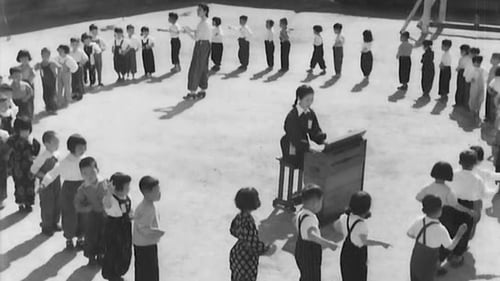
Setsu
Shows the devastation caused by the atomic bomb, and by use of a fictional storyline, portrays the struggle of the ordinary Japanese people in dealing with the aftermath.

Group of women escape Chinese controlled area for Japanese occupied lands during Pacific War.

Otsuma
This film is based on a real Meiji era performer -- and tells of Tochuken's partnership with his wife (played by Chikako Hosokawa) who played shamisen for his songs/recitations), his affair with a geisha (Sachiko Chiba), and the deterioration of his partnership and marriage.
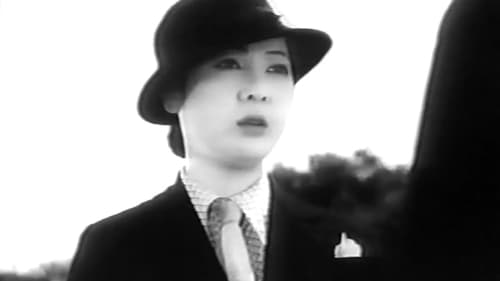
Shingo's wife
Kimiko, a Tokyo white-collar working girl, lives with her serious, intellectual, haiku-writing mother. Kimiko seeks to marry her boyfriend but needs her absent father to act as the go-between and negotiate the marriage. Kimiko travels and finds her father living with a second family.

Aoyama's mistress
Adaptation of Fumiko Hayashi's novel.

O-Ren
Three sisters earn money for their bossy mother by being samisen street musicians. This means mainly playing a banjo type instrument for tips in bars...

Based on the comic by Yutaka Asou


























